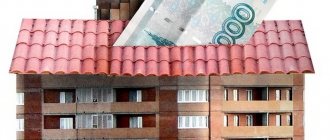The legislative framework
The Federal Law on the Responsible Treatment of Animals takes into account the rules of behavior and treatment of a pet, the rights and responsibilities of the owner of a particular breed of dog.
The law is based on treating your pet with respect. The owner must perceive him as a creature who can be scared and in pain and who claims to be treated appropriately and have his needs met.
The law defines the owner as the owner or other person who keeps a pet. At the same time, the rules for dog breeds that are potentially dangerous are prescribed in a separate paragraph.
Monitoring compliance with these regulations is carried out by any organizations or unions that take on such responsibility. A list of such organizations can be found on the local government website.
Rights and responsibilities of owners
According to current regulations, the pet owner is obliged to:
- Comply with all requirements of the Federal Law, as well as other legal acts of the Russian Federation related to issues of keeping pets.
- Treat your pet in a manner that does not violate the rights and freedoms of others.
- Do not allow your pet to cause harm to the health and property of others, as well as other animals.
- Carry out the duties prescribed by current legislation in the field of veterinary medicine.
- Prevent unplanned reproduction of your pet by temporarily isolating or sterilizing it.
- Independently and promptly notify medical institutions, as well as other authorized bodies, about facts of animal injury to other persons.
- Freely provide the animal to an authorized veterinary institution for the necessary examinations, as well as further observation of the pet in order to identify diseases dangerous to the victim.
- Walk animals only in places established by legal acts.
- Do not allow animals to pollute public areas and private property of third parties.
- Do not allow animals to harm the environment, including objects of the animal world.
- If it is impossible to continue keeping the animal, transfer it to new owners or contact the authorized authorities to send the pet to a shelter or euthanize it.
Each resident of an apartment building has the right to own and keep any animal from the list of permitted animals, subject to compliance with all norms and rules prescribed by law.
The list of pets allowed for pets includes:
- Domestic dogs and cats.
- Small rodents.
- Ferrets.
- Birds.
- Small non-venomous amphibians.
- Aquarium fish.
- Shellfish.
- Small non-poisonous reptiles.
- Non-poisonous arthropods.
Any animal from the above list is the private property of its owner and is protected by law on an equal basis with other personal property of citizens of the Russian Federation.
Registration rules
Pet registration is offered to owners of all dogs, but while this is not a requirement for companion dogs, registration is mandatory for fighting breed dogs. This procedure is also useful because if a pet goes missing, an organized search will be organized.
If you purchase or sell a dog, you must report this to any nearby veterinary institution that belongs to your place of residence.
If the animal is missing, the veterinary institution will help organize a search. If a puppy is purchased or taken into care by a homeless person, it is registered.
To do this, contact the house management organization at the place of registration and draw up a document, writing on the form:
- Type of pet and its breed;
- A nickname or several options to which the dog will respond;
- Age, distinctive features and gender;
- Coat color and type;
- Data on sterilization and the height of the animal at the withers.
After receiving the form, the applicant is issued a certificate of ownership and a pet tag. Registration takes a few minutes and does not require any financial investment from the dog owner. But you must pay tax for keeping and owning a pet.
Registration of dogs of potentially dangerous breeds follows a different scheme. Additional documents will be needed here.
The owner of the animal must attend a course of lectures on the rules of raising, providing and breeding dogs at the Spetskommuntrans Municipal Unitary Enterprise or a canine organization with regional or republican status.
At the end of the lectures, the owner is given a certificate or certificate. If such documents are not available, it is possible to take an urgent three-month course. Otherwise, registration will be denied.
Registration is not provided in cases where the registered animal is not provided and if the veterinarian has not given preventive vaccinations, about which a medical certificate is issued. It is necessary to show the dog so that the person in charge is convinced that the information entered in the form is correct.
At the request of the owner, the dog can be given a microchip which will contain information about the owner, the dog and the rules for handling it.
Sanitary standards
The presence of animals is associated with potential pollution of the surrounding area.
Each owner is obliged to take measures by removing excrement, fur and other waste products of the pet.
Otherwise, he may face a class action lawsuit from neighbors and municipal authorities .
Sometimes sanitary standards are prescribed by the internal charter of the HOA, obliging the owner to ensure their strict compliance.
By default, all animals are vaccinated against rabies . Ideally, sanitary rules limit the number of animals living in an apartment, but in practice the issue is not regulated .
For example, the law directly states the impossibility of placing a nursery in a home, but at the same time the number is not limited .
Hence the common situations when there are 10-15 cats or dogs in rooms , which become a headache for all residents of the house.
In case of violation of noise indicators, unsanitary conditions and danger to others, the responsible authorities (precinct, housing inspection, SES) require the owner to eliminate the violations .
He will also be subject to an administrative fine, and in case of intentional harm to another person, criminal prosecution.
Maintenance in an apartment building
From the point of view of the law, a dog is the property of a person. That is, in fact, the same legal laws apply to the dog as to any purchased item.
As prescribed by federal law of the Russian Federation, you can only keep an animal in your own apartment. If you want to place a dog in the entrance or attic, you need to obtain permission from the general building meeting. If any of the apartment owners in your building do not agree with this decision, keeping a dog will be illegal and the neighbors have the right to complain.
Even if a pet is kept in an apartment, it should not pollute common areas in the house, that is, stairwells, entrance, local area, attic or basement.
Dogs are usually walked early in the morning, at six or seven o'clock. It should be remembered that the law prohibits a pet from barking and whining on the street or in an apartment from 22:00 to 8 in the morning. Again, neighbors can complain to the local police officer about a violation of law and order.
The neighbor's dog constantly barks - what should I do?
If the neighbor's dog constantly barks, then this, of course, will cause problems in relations with neighbors. The first thing to do is try to resolve the situation peacefully. You need to calmly talk to your neighbors and ask them to take action. A voice recording can be used as evidence.
If talking does not help, then you should observe the conditions in which the animal is kept. When there are signs of abuse, the police should be contacted. If suspicions are confirmed, neighbors face a fine of up to 300 thousand rubles or even criminal liability with imprisonment for up to two years.
How can you tell if an animal is being treated cruelly?
- restrict movement (for example, a dog sits on a short chain, and the owner does not allow it to warm up);
- there is no kennel in the yard where the dog is kept;
- the owner does not act when the animal freezes or overheats;
- deliberate persecution by thirst or hunger occurs;
- the animal is subjected to unjustified suffering.
A complaint against a neighbor is drawn up in free form and can be signed by the team. You can take a photo or video as evidence.
If talking doesn't help and no abuse is identified, note the times at which your neighbor's dog barks. When this happens early in the morning (before 9 am) and late in the evening (after 10 pm), you can complain about a violation of the silence law.
Walking rules
To regulate the rules of walking, the federal law of the Russian Federation allocates an entire article, the provisions of which can be used by both dog owners to prove their case, and by residents of an apartment building if they have complaints.
You can walk your dog wearing a muzzle and with or without a leash, depending on the breed and height. But if you are keeping a dog of a fighting breed, you must walk it using safety measures, regardless of where the walking takes place.
In public places, you can only walk an animal with a leash, and for fighting breeds, with a muzzle. A public place is considered to be a thoroughfare, curb, square, or area near a house. Walking without a leash can be done at least thirty meters from the house, but for fighting dogs, again, only with a muzzle.
A puppy under three months old does not need to wear a muzzle, as do decorative breeds that are less than 25 centimeters tall at the withers.
When crossing the road and moving along the sidewalk, the dog must be kept on a short leash. You cannot bathe your pet on beaches near rivers, lakes and seas, as this violates the regulation on harming natural objects. If a dog pollutes public areas, the owner is obliged to immediately clean up after the pet.
Walking is prohibited on the territory of clinics, clinics and hospitals, playgrounds and cultural and developmental institutions. However, the territories of cultural institutions do not include city parks, forests and public gardens.
It is forbidden to walk a pet under the influence of alcohol or drugs, and a child under 14 years of age cannot be entrusted with walking two dogs at the same time.
As for walking fighting dog breeds, it cannot be carried out if the owner does not have a certificate of training in dog behavior or has not been registered. You cannot entrust walking to minors, incapacitated or disabled people.
Thus, the dog must be taken out of the apartment on a leash and can only be released outside the house. If she is a fighting breed, then you even need to let her go and go out with a muzzle. And when crossing the road or city streets, use a leash and bring the dog as close to you as possible.
Website of the State Budgetary Institution "Zhilishchnik" of the Tverskoy district
(approved by resolution of the Moscow Government of January 24, 1994 No. 101)
1. General Provisions
1.1. These rules apply to owners of dogs and cats in Moscow, including enterprises, institutions and organizations, regardless of their departmental subordination.
1.2. It is allowed to keep animals both in apartments occupied by one family and in the rooms of communal apartments if the neighbors do not have medical contraindications (allergies).
1.3. A mandatory condition for keeping an animal is compliance with sanitary, hygienic, veterinary and sanitary rules and hostel standards.
1.4. It is not allowed to keep animals in common areas: kitchens, corridors, stairwells, attics, basements, as well as on balconies and loggias.
1.5. Dogs belonging to citizens, enterprises, institutions and organizations are subject to mandatory registration, annual re-registration and vaccination against rabies, starting from 3 months of age, regardless of breed, in state veterinary institutions at the place of residence of citizens, the location of enterprises, institutions and organizations - owners of animals . Newly acquired animals must be registered within 2 weeks.
1.6. When registering dogs, the owner is issued a registration certificate and is introduced to these rules.
1.7. When selling and transporting dogs outside the city, a veterinary certificate of the established form is issued, which indicates the date of vaccination against rabies.
1.8. It is allowed to transport animals by all types of ground transport, subject to conditions that prevent disturbance to passengers. Dogs must be muzzled and on a short leash. It is allowed to carry small animals in closed bags on the subway.
1.9. It is not prohibited for the owner to stay in the hotel with a dog or cat, subject to agreement with the administration and subject to sanitary and hygienic rules.
1.10. It is prohibited to appear with a dog without a leash and muzzle in shops, institutions, playgrounds, markets, beaches and in transport, as well as walking dogs in the territories of healthcare institutions, kindergartens, schools, other educational institutions and institutions working with minors.
1.11. It is prohibited to breed cats and dogs for the purpose of using the skin and meat of the animal, as well as for the purpose of animal fighting.
1.12. When a dog or cat bites a person or animal, animal owners are required to report this to the nearest state veterinary institutions and deliver the animals for examination and quarantine, if necessary, at a veterinary institution within 10 days.
1.13. Dogs and cats that are in public places without accompanying persons, except for those left on a leash by their owners near shops, pharmacies, consumer service establishments, clinics, etc., are subject to capture upon requests from interested organizations.
2. Responsibilities of the animal owner
2.1. The owner of an animal is obliged to keep it in accordance with its biological characteristics, treat the animal humanely, not leave it unattended, without food and water, not beat it, and if the animal becomes ill, seek veterinary care in a timely manner.
2.2. Animal owners are required to maintain the sanitary condition of the home and surrounding area. It is prohibited for dogs to pollute entrances, staircases, elevators, as well as playgrounds, paths, and sidewalks. If the dog leaves excrement in these areas, it must be cleaned up by the owner.
2.3. Animal owners are required to take the necessary measures to ensure the safety of people and animals around them.
2.4. Owners of dogs and cats are required to provide them at the request of the state veterinary inspector for examination, diagnostic studies, preventive vaccinations and therapeutic and preventive treatments.
2.5. When walking dogs and in residential premises, owners must ensure silence - prevent dogs from barking from 23:00 to 7:00.
2.6. It is prohibited for drunk persons and children under 14 years of age to walk dogs or appear with them in public places and on public transport.
2.7. You need to take your dog for a walk on a leash with a tag attached to the collar, which indicates the dog’s name, owner’s address, and telephone number. You can let your dog off the leash only in sparsely populated areas. Vicious dogs should wear a muzzle.
2.8. Dog owners who own a plot of land may keep their dogs free-ranging only in a well-fenced area or on a leash. A warning sign about the presence of a dog must be made at the entrance to the site.
2.9. When crossing the street and near highways, the owner of the dog must take it on a leash in order to avoid traffic accidents and the death of the dog on the roadway.
2.10. If further maintenance is impossible, the animal must be transferred to another owner or delivered to a veterinary institution.
2.11. The owner reports the acquisition, loss or death of a dog to housing maintenance organizations at the place of residence.
2.12. If an animal dies, its corpse is handed over to a veterinary institution. It is prohibited to throw away the corpse of a dead animal. The dog's registration certificate is submitted to the veterinary institution where it was registered.
3. Rights of the animal owner
3.1. Any animal is the property of the owner and, like any property, is protected by law.
3.2. An animal may be seized from the owner by court decision or otherwise in cases provided for by current legislation.
3.3. The owner has the right to leave his dog tied on a short leash near a store or other establishment for a limited time (a large dog with a muzzle).
4. Responsibility of the animal owner
for compliance with these rules
4.1. For failure to comply with these Temporary Rules, owners of dogs and cats are liable in accordance with the procedure established by law.
4.2. Harm caused to the health of citizens or damage caused to property by dogs and cats is compensated in accordance with the procedure established by law.
4.3. For cruel treatment of an animal or for an animal thrown into the street, the owner bears administrative responsibility if his actions cannot be regarded as malicious hooliganism and are not subject to criminal punishment in accordance with current legislation.
5. Monitoring compliance with these rules
5.1. Housing maintenance organizations:
— ensure the maintenance of sanitary conditions in the territory of households;
— ensures the maintenance of basements, attics and other utility rooms in accordance with the rules and regulations for the technical operation of the housing stock;
- inform organizations involved in catching about the presence of stray dogs and cats on their territory;
— provide assistance to veterinary service workers in carrying out anti-epizootic measures, allocate free premises for carrying out preventive vaccinations against rabies in the winter and spring;
- posted in a visible place for citizens to familiarize themselves with the Temporary Rules for Keeping Dogs and Cats in Moscow, addresses and telephone numbers of veterinary institutions that carry out registration, re-registration and treatment of animals; an organization that catches stray dogs and cats, and the public inspection for animal protection in Moscow.
5.2. Veterinary authorities:
— monitor the implementation of veterinary requirements by animal owners and carry out educational work among the population in order to prevent animal diseases;
— carry out registration and re-registration of dogs, as well as issuing re-registered certificates.
5.3. Public Inspectorate for Animal Protection in Moscow:
— explains and promotes the implementation of these Temporary Rules;
— if necessary, assists owners in maintaining animals;
— together with law enforcement agencies, holds animal owners accountable for violating the Temporary Rules for Keeping Dogs and Cats in Moscow.
Moscow Veterinary Committee
INFORMES
FREE VACCINATION
ANIMAL AGAINST RABIES
ATTENTION TO PET OWNERS
Rabies
- an acute viral infection characterized by symptoms of polyencephalitis. In the presence of clinical manifestations it ends in death. The only means of prevention is vaccination of domestic, stray, wild and other susceptible animals.
Vaccination of animals against rabies is carried out free of charge in
the Central Administrative District of Moscow in the divisions of the State Veterinary Service:
| SBBZH Central Administrative District | Verkhnyaya Krasnoselskaya street, 14, building 1 | 8(495)264-00-32 | 8:00-22:00 |
CALLING A VETERINARIAN AT HOME:
8 (495) 612-04-25 (24 hours a day)
*Calling a veterinarian at home is paid.
For your convenience,
vaccination points . The list of addresses and times for free vaccination against rabies is posted on the website mosobvet.ru in the “ Vaccination ” section or on the page of the Moscow Veterinary Committee on the Moscow Mayor’s portal in the “Schedule of vaccination points” section.
Host Responsibilities
The pet's living conditions and the owner's responsibilities are regulated by the third chapter of the federal law of the Russian Federation. The owner is obliged to provide an area appropriate to the size and needs of the pet. The room must have a source of daylight. This means that you cannot provide your dog with a storage area or a corner in the family room.
The owner is obliged to provide the animal with adequate nutrition, clean water, physical activity and sleep. This means that the dog must be let off a leash, at least in the apartment, and it should not be limited in food and water if this would harm its physical health.
In case of any deviations from the norm, the owner must immediately contact the veterinary service. Also, the owner must take care to prevent unwanted offspring by carrying out sterilization.
The law defines a normal place of residence for a pet if it is provided with optimal temperature and humidity conditions, well lit and ventilated, and protected from any harmful influences. The owner must observe safety measures in relation to third parties, preventing the dog from going outside without permission.
If the owner is contacted by state control authorities regarding the treatment of animals, he is obliged to provide the dog for inspection and show certificates indicating that the animal is registered and vaccinated.
The body of a deceased pet is buried in a specially designated place, or the body is transferred to organizations specializing in the burial of animals.
What animals are classified as domestic animals by law?
The legislation does not have a clear definition of a pet. In other words, a citizen has the right to have and place in his apartment not only a cat, dog or parrot, but also a more exotic pet - a lion, python, hippopotamus.
There is no ban on specific species. However, there is a rule according to which accommodation should not interfere with the people around you.
However, there are several signs by which an animal can be considered domestic:
- it is registered and has a veterinary passport;
- it is vaccinated against rabies;
- Preventative measures are applied to the pet - for example, it is wearing a flea collar or the animal is subject to regular treatment for other diseases.
These requirements are mandatory in most cases. If the above points are violated, certain measures may be applied to the owner.
Host Responsibility
There are widespread cases of violation of the legislation of the Russian Federation on keeping dogs, while the owners arrogantly believe that it is impossible to catch them in this and this responsibility is small.
Here are a few examples of the administrative responsibility of the owner:
- Violating these rules for keeping a pet, the owner will pay a fine of up to 1000 rubles;
- In case of contamination of common property in an apartment building and adjacent territory - a fine of up to 1000 rubles;
- By violating the walking rules, the owner will pay a fine of about 1,000 rubles;
- If a dog attacks another animal with injuries or death as a result - a fine of up to 2,500 rubles, for a wild animal - up to 3,000 rubles;
- Assault on a person is often considered a criminal offense due to negligence. In some cases, it is regarded as an attempt and a threat to the life and health of the victim. In other cases, the owner of the dog is fined up to 2,500 rubles.
In addition to paying an administrative fine, the owner can pay moral damages and any other compensation if the victims go to court and the decision is made in favor of the plaintiffs. If there is a systematic violation, the dog may be seized or quarantined for a certain period of time.
What will happen for violating the rules for keeping animals?
Depending on the type of violation, administrative or criminal liability may be applied to the animal owner. When the rules of detention are violated for the first time, the preventive measure is a warning. After this, the offender should eliminate the reasons that prompted the neighbors to complain.
The most common type of punishment for negligent pet owners is an administrative fine. The owner of the animal can be fined up to several thousand rubles.
If an animal causes harm to the health of another person, its owner may face criminal liability under Art. 118 of the Criminal Code of the Russian Federation. This may include fines, forced labor, or imprisonment.
In addition, the victim has the right to demand compensation for physical and moral damage caused. The amount of compensation is determined individually. It is not regulated by law, and the victim has the right to request compensation in any amount that seems acceptable to him.
How to record violations
If you are sure that the pet owner regularly violates the rules of keeping or other animals or people suffer from his actions, you can record these violations and contact the local police officer.
Loud barking may be detected by a noise meter. The maximum limit values are 45 dB at night and 55 dB during the day. The appeal will fall under the law on violation of public order.
If a dog pollutes the environment, the entrance or rushes at people, it is enough to film it on photo or video, attract witnesses and write a statement to the local police officer. If an attack is committed, you must immediately go to the clinic and obtain a certificate indicating the damage.
Some rules for keeping dogs
The Russian Federation has not yet adopted a law aimed solely at regulating the breeding and keeping of pets. But this does not mean that certain conditions should not be created for animals. In addition to the already agreed timely walking of dogs, it is necessary to ensure that some other requirements are met.
Maintenance is possible only in those rooms where there are windows, since natural light in the house plays a huge role for life and health. You also need to ensure that there are no chemical contaminants and large amounts of dust.
It is imperative to get vaccinated in a timely manner and make a corresponding entry in the veterinary passport. In the event of conflict situations related to the pet’s health, it will be the main evidence of the pet’s condition.
Documents indicating the dog's pedigree are not mandatory; they are required exclusively for participation in competitions, competitions and exhibitions.
If the dog is purebred, it is important to keep the purchase and sale agreement in case you need to prove the owner's ownership. It is very important to train and educate an animal in order to avoid future conflict situations related to its behavior.
Many owners trust their children to walk their dogs. In this case, you need to remember one important rule - if the dog’s weight exceeds 15 kilograms, then only persons over 14 years old can walk it.
If the owner has more than two dogs, then he will have to either walk them one at a time or resort to the help of other family members. A maximum of two dogs can be walked with one person, regardless of their breed and size.
Traffic rules do not allow crossing the roadway with a dog that is not on a leash. This could lead to a serious accident.
If you need to take your dog on public transport, it must also be on a leash. Small animals can be placed in a basket or a special carrier bag.
The best option for keeping a dog is a country house. However, if the pet is not kept in an enclosure, but moves freely throughout the entire area of the site, then care must be taken to ensure that it cannot independently leave the boundaries of the local area.
If a dog breaks out and bites someone, the law provides for a significant fine for its owner.
The legislation does not limit in any way the number of animals that can be in an apartment or private house. If they do not disturb their neighbors in any way, walk on time and do not show aggression, then the owner cannot be held responsible just because there are too many dogs.
What breeds should not be kept in an apartment?
Current legislation does not establish a clear list of those breeds that are prohibited from living in apartments. But it contains a list of breeds that are dangerous and aggressive. These include:
- Fighting breeds: pit bull terrier, Staffordshire terrier, mastiv, alabai, bulldog, Caucasian shepherd dogs.
- Hunting breeds: huskies, griffins, retrievers, Azawakhs and Blandhounds. The corresponding breeds were bred specifically for hunting, which is responsible for their specific behavior and special content. They need maximum physical activity, which can become a problem when keeping them in an apartment.
- Guard breeds: Rottweilers, Dobermans, German Shepherds, Asian Shepherds, Bullmastiffs. The main purpose of breeding this type of dog is to perform service. Their animal instincts are heightened; in an apartment, such a dog may react inappropriately to the behavior of family members, so keeping them in an apartment building is not recommended.
- Herding breeds: collies, Central Asian and Australian shepherds, bobtails, boxers and mountain dogs. These breeds require long walking, regular training, as well as proper and plentiful nutrition. This category can react aggressively towards neighbors, family members and guests.






